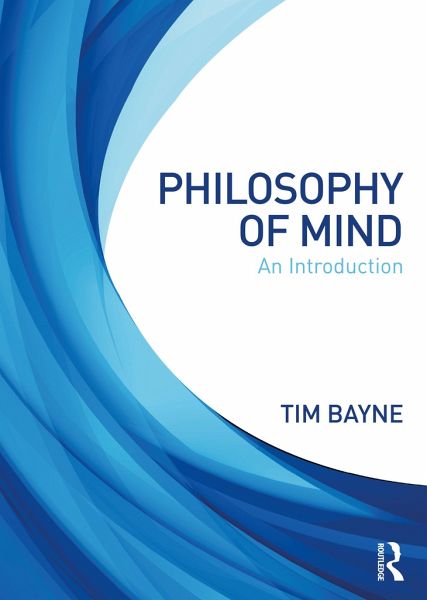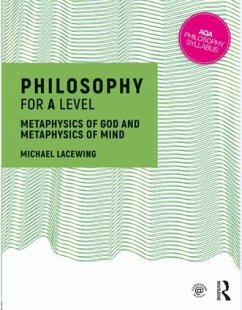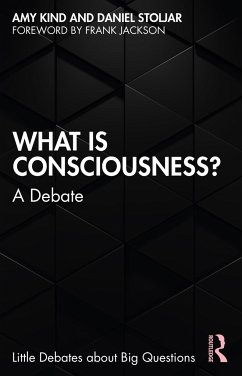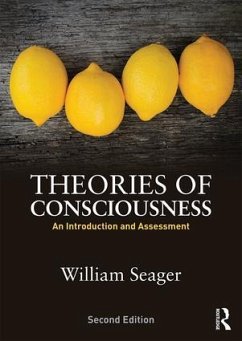
Philosophy of Mind
An Introduction
Versandkostenfrei!
Versandfertig in 6-10 Tagen
42,99 €
inkl. MwSt.
Weitere Ausgaben:

PAYBACK Punkte
21 °P sammeln!
Developments in the philosophy of mind over the last 20 years have dramatically changed the nature of the subject. In this major new introduction, Tim Bayne presents an outstanding overview of many of the key topics, problems, and debates, taking account not only of changes in philosophy of mind itself but also of important developments in the scientific study of the mind.The following topics are discussed in depth:What distinguishes a physicalist conception of the mind?Behaviourism, the identity theory, functionalism, and eliminativism as accounts of the mentalThe nature of perception, includ...
Developments in the philosophy of mind over the last 20 years have dramatically changed the nature of the subject. In this major new introduction, Tim Bayne presents an outstanding overview of many of the key topics, problems, and debates, taking account not only of changes in philosophy of mind itself but also of important developments in the scientific study of the mind.
The following topics are discussed in depth:
What distinguishes a physicalist conception of the mind?
Behaviourism, the identity theory, functionalism, and eliminativism as accounts of the mental
The nature of perception, including the issue of perceptual transparency, the admissible contents of perception, and the question of unconscious perception
The nature of thought, including the language of thought hypothesis, Searle's Chinese room argument, and the Turing test
The basis of intentional content
Externalist accounts of content and the 'extended mind' thesis
Consciousness-based objections to physicalism, and illusionist and panpsychist conceptions of consciousness
Theories of consciousness, including methodological issues in the study of consciousness
Mental causation, including both philosophical and scientific challenges
The problem(s) of other minds, including knowledge of non-human minds
Self-knowledge
Personal identity and the nature of the self
The book features a number of boxes that provide a more in-depth look at particular issues. Also included are chapter summaries, guides to further reading, and a helpful glossary of terms.
Written by a leading figure in the field, Philosophy of Mind: An Introduction is an invaluable core text for any student coming to philosophy of mind for the first time.
The following topics are discussed in depth:
What distinguishes a physicalist conception of the mind?
Behaviourism, the identity theory, functionalism, and eliminativism as accounts of the mental
The nature of perception, including the issue of perceptual transparency, the admissible contents of perception, and the question of unconscious perception
The nature of thought, including the language of thought hypothesis, Searle's Chinese room argument, and the Turing test
The basis of intentional content
Externalist accounts of content and the 'extended mind' thesis
Consciousness-based objections to physicalism, and illusionist and panpsychist conceptions of consciousness
Theories of consciousness, including methodological issues in the study of consciousness
Mental causation, including both philosophical and scientific challenges
The problem(s) of other minds, including knowledge of non-human minds
Self-knowledge
Personal identity and the nature of the self
The book features a number of boxes that provide a more in-depth look at particular issues. Also included are chapter summaries, guides to further reading, and a helpful glossary of terms.
Written by a leading figure in the field, Philosophy of Mind: An Introduction is an invaluable core text for any student coming to philosophy of mind for the first time.














